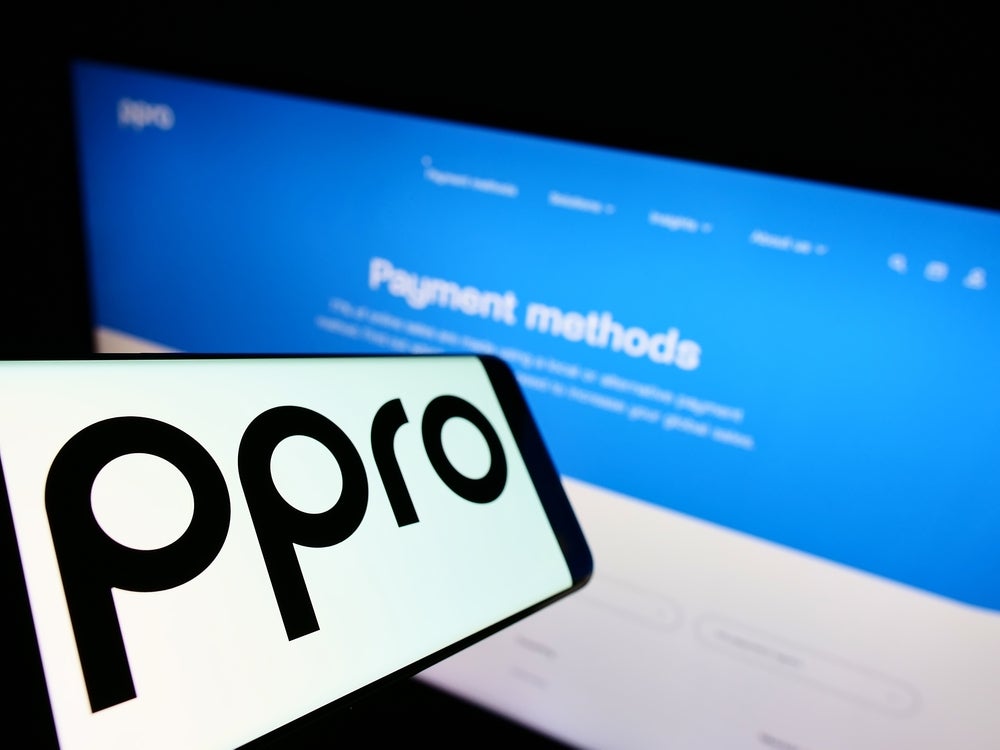In a move clearly aimed at countering foreign
competition in Switzerland’s payments and securities markets, the
country’s financial services industry closed ranks in early 2008
when an agreement was reached to merge three of the industry’s
three key services organisations: Telekurs Group, SWX Group and SIS
Group.

The result of the merger, the SIX Group, brings together expertise
in payments, clearing and settlement, securities trading and market
data services.
Underscoring the objective of countering foreign competition, a
press release at the time of the merger declared it would enhance
the Swiss financial service industry’s “competitiveness and
innovative power and maintain long-term Swiss sovereignty over the
country’s financial market infrastructure”.
Firmly in the hands of the Swiss financial services industry, SIX
Group is owned by 160 companies in the banking industry with Swiss
banks dominating; holding a combined equity stake of some 76
percent. Foreign banks have a combined stake of 23 percent.
Formerly operated by Telekurs Group, SIX Group’s electronic
payments operations span the full gamut of large value and retail
transactions.
How well do you really know your competitors?
Access the most comprehensive Company Profiles on the market, powered by GlobalData. Save hours of research. Gain competitive edge.

Thank you!
Your download email will arrive shortly
Not ready to buy yet? Download a free sample
We are confident about the unique quality of our Company Profiles. However, we want you to make the most beneficial decision for your business, so we offer a free sample that you can download by submitting the below form
By GlobalDataOne of the key roles played by SIX Group is the operation of
Switzerland’s Swiss franc real time interbank payment system, Swiss
Interbank Clearing (SIC), on behalf of the country’s central bank
Swiss National Bank.
The SIC system serves all of the 334 independent banks and 367
local co-operative (Raiffeisen) banks in Switzerland.
The SIC system which falls under the SIX Interbank Clearing unit
continues to enjoy significant growth with transaction volumes
recoding a CAGR of 15 percent between 2002 and 2007.
Growth slackened in 2008 with the number of transactions settled by
the SIC system increasing by 4.5 percent compared with 2007 to 372
million. The value of transactions increased by 11 percent to CHF58
trillion ($54 trillion).
The overwhelming majority of cashless payments processed by the SIC
system take the form of credit transfers and, according to the Bank
for International Settlements a total of 648 million credit
transfers were processed in 2008. This was up from 545 million in
2000 and represented a CAGR of 2.5 percent over the period.
Also operated by SIX Group is the euro-SIC interbank payment system
for transactions in euro on behalf of Swiss banks. In 2008,
transactions processed by euroSIC increased by 11 percent to 3.9
million transactions while the value grew by 11.4 percent to €1.41
trillion ($2 trillion), which corresponds to some 95 percent of the
total euro turnover settled in Switzerland. euroSIC serves 150
financial institutions with more than 3,200 bank branches.
SIX Group’s other major payments involvement is in credit and debit
cards via its card payments processing unit, SIX Card Solutions,
and its merchant acquirer unit SIX Multipay.
The pioneer of payment cards in Switzerland, SIX Multipay was
established in 1976 as Eurocard.
SIX Group, which has some 4.4 million cardholders and 84,500 points
of acceptance, reported 452 million card payment transactions by
credit, debit and prepaid cards in 2008, a significant 42 percent
increase compared with 2007.
In addition, transactions undertaken for third-party Swiss card
issuers increased by 15 percent to 352 million in 2008 while
transactions processed for foreign customers increased by 308
percent to 110 million.
Overall SIX Group’s payments operations enjoyed an impressive first
year with total revenue increasing by 72 percent compared with 2007
to CHF324.4 million.
Within the Swiss payments market, another entirely Swiss banking
industry-owned organisation, Aduno Group, numbers amongits major
shareholders Raiffeisen Group, Migros Bank and Bank Coop.
As at the end of April 2009, Aduno Group, which specialises in
payment cards, had 4.54 million credit cards and 7.61 million debit
cards in issue and some 371,000 affiliated merchants.
Carrying the brand name Viseca, Aduno Group cards are issued under
MasterCard and Visa programmes.
Postfinance

Another key player in Switzerland’s payments market is the state
owned postal service Swiss Post which offers payments and financial
services via its Postfinance unit.
Notably, Swiss Post was a pioneer of non-cash payments in
Switzerland having commenced offering payments transactions in
1906, the year prior to the establishment of the country’s central
bank.
Operating through 1,600 post offices Postfinance is a significant
force in the country’s domestic and cross border payments market
though of late growth in transaction volumes has been modest with a
CAGR of 1.7 percent recorded between 2005 and 2008.
In 2008 Postfinance executed 843 million transactions, up 2.4
percent compared with 2007 while in the first quarter of 2009 the
number of transactions increasing by 1.5 percent compared with the
first quarter of 2008 to 209 million.
Postfinance’s operates its own central payment clearing network
which is linked to the SIC. In addition, Postfinance operates
Postomat, one of the country’s two interoperable ATM networks. The
second, Bancomat is operated by the banking industry.
Postfinance’s consumer and business client base reflects solid
growth with the number of customers increasing between the end of
2008 and the end of the first quarter of 2009 by some 30,000 since
to 2.54 million. The number of accounts increased from 3.65 million
to 3.72 million, while total customer deposits jumped 28 percent to
CHF68 billion.
Postfinance has achieved notable success with it internet banking
service, with the number of online customers hitting the one
million mark in April 2009 and some 10,000 new customers still
signing up every month.
Far less successful has been Postfinance’s foray into mobile phone
payments, with a service launched in August 2007 that enables
customers to order products and services via short message service
(SMS) and pay simultaneously via their postal account. Far from a
roaring success this service has, according to PostFinance, has
attracted a mere 4,500 customers and 35 merchants.
Undeterred, Postfinance has made a second foray into mobile
payments with the launch in April 2009 of a basic service that
enables customers to transfer funds from one postal account to
another using a SMS text message.
The service enables a maximum of CHF100 per recipient account per
day to be transferred and is free of charge for both the sender and
the recipient, except for the SMS message charge. The amount is
credited to the recipient’s account within a few minutes of a SMS
transfer being sent.
Mobile payments in Switzerland undoubtedly faces stiff competition
from other payment alternatives including the country’s extensive
network of bank branches, which including those of Postfinance
total some 4,300. For a country with a population of only 7.58
million this equates to a high branch density of 1.76 branches per
1,000 inhabitants.
The internet also provides a highly convenient means to access
banking and payment services. According to a study by research firm
IDC Corporation, Switzerland ranks as one of the most
computer-equipped countries in the world with 83 percent of people
owning a computer and over 70 percent actively using the
internet.
Contactless gains ground
Despite the sophistication of Switzerland’s electronic payments
system, the use of cash remains high. According to SIX Group, cash
accounted for 79 percent of total transactions by number in 2007
compared, for example, with 65 percent in France and 69 percent in
the UK.
SIX Group believes a number of new technologies have the potential
to significantly reduce cash use in Switzerland and lays particular
emphasis on the role contactless payments could play.
Beyond contactless payments applications in retailing, SIX Group
believes the technology could have significant potential in public
transport, particularly as Switzerland records the highest
utilisation of public transportation in Europe.
The company stressed that every year over CHF4 billion is spent on
public transport but payment takes place either by cash at the
station, on the transport itself or through pre-paid passes.
Aduno Group is another major driver of the adoption of contactless
payments in Switzerland, and in October 2007 became the first
issuer of contactless payment-enabled cards in Switzerland and
Continental Europe. A credit card-based solution incorporating
MasterCard PayPass contactless technology, the first service was
launched in the Swiss city of Gossau. The maximum contactless
payment that can be made is CHF40.
Subsequent to the Gossau launch, Aduno Group has gradually expanded
it contactless payments programme and currently over one hundred
Viseca affiliated merchants in Switzerland accept PayPass for
contactless payments. Advancing the technology further, all Viseca
card partner banks began phasing in PayPass as an additional
function in their credit cards in June 2009.
Aduno Group predicts that by 2010 some 600,000 Viseca credit cards
with the PayPass function will be in circulation throughout
Switzerland.
Contactless payments is attracting other Swiss entrants including
SIX Group’s Multipay division which in September 2008 initiated a
pilot trial of contactless payments via near field
communications-equipped mobile phones.
Other participants in the six-month trial were Visa Europe,
Switzerland’s second largest bank Credit Suisse, PostFinance,
mobile network operator Swisscom and Swisscard, a credit card
specialist business owned by Credit Suisse and American
Express.
The trial using Visa’s PayWave technology proved a resounding
success, with 90 percent of participants expressing a high level of
satisfaction in mobile phone-based contactless payments. The
maximum contactless payment that could be made was CHF40.
Indicative of the economic gain to be had by reducing the use of
cash, a study commissioned by Aduno Group and undertaken by the
University of St Gallen in 2007 estimated that the use of cash
costs the Swiss economy CHF2.2 billion annually.
The study also revealed that from the perspective of the Swiss
economy, cashless payments are cheaper compared to cash at an
amount of just CHF12 or more.








